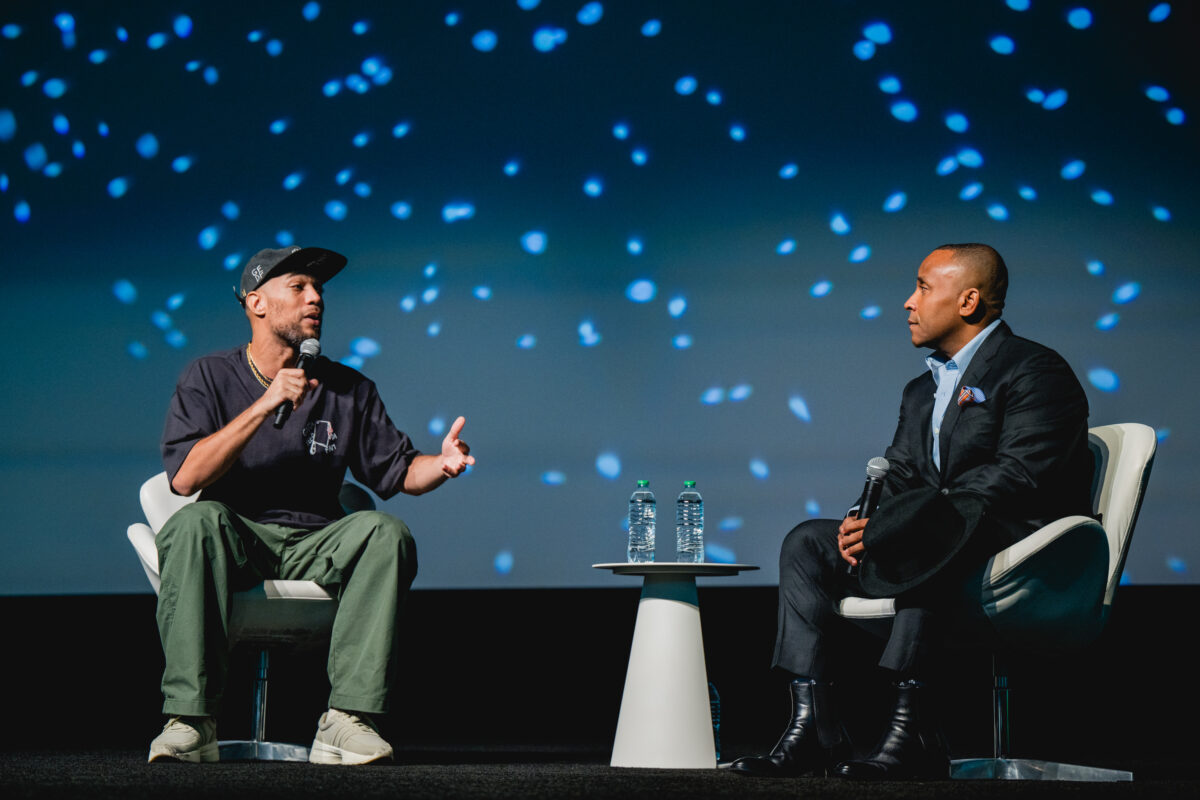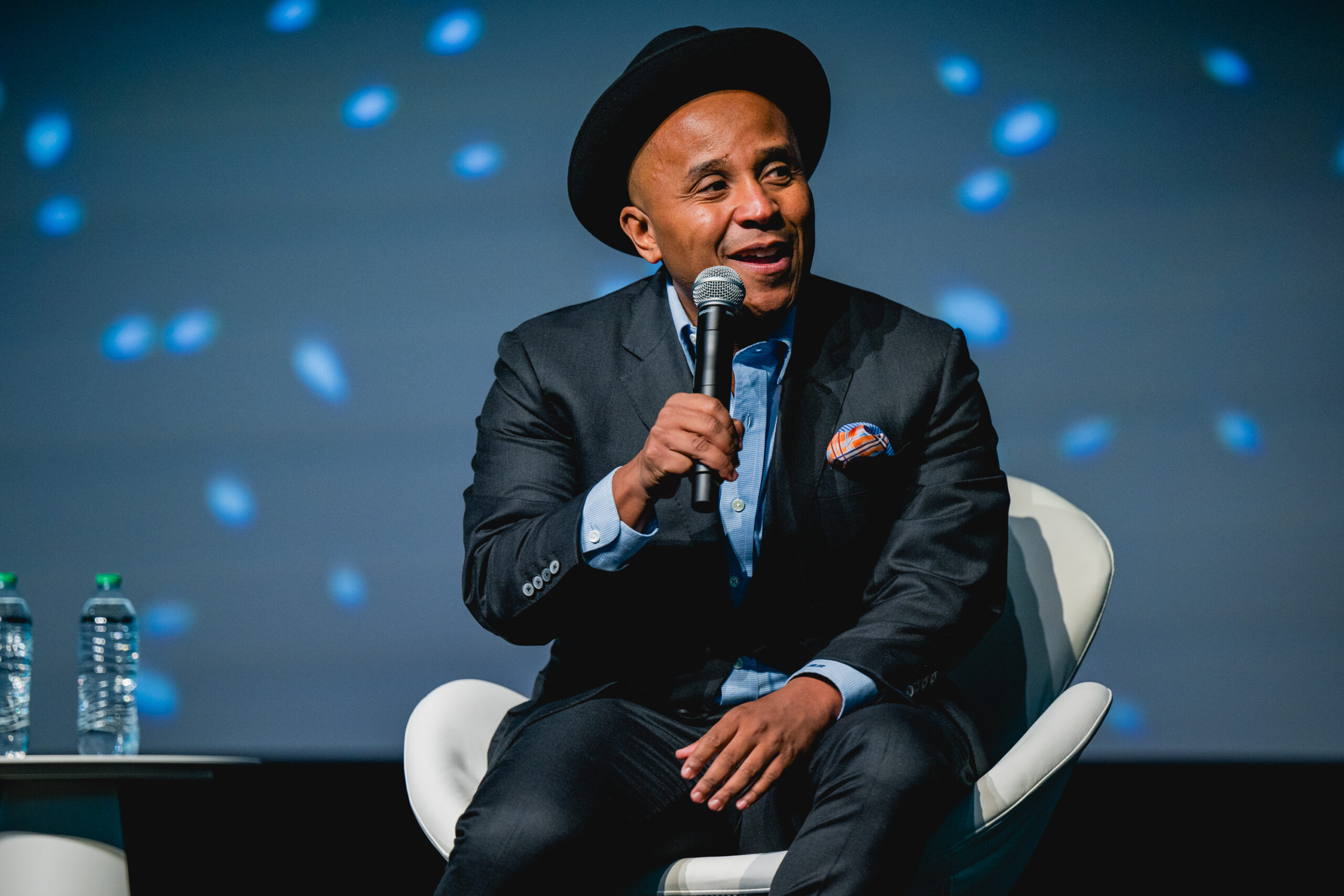Civil rights leader Rashad Robinson and actor Kendrick Sampson had a much-needed conversation at the AFROTECH™ Conference 2024.
During the fireside chat “We’ve Voted, Now What?,’” on Nov. 15, the two activists led a compelling discussion around post-election and reclaiming our power through infrastructure.
Robinson served as the president at Color of Change for 13 years and is currently a board member of the Edward W. Hazen Foundation. With his expertise, Robinson shared his thoughts on what true power looks like for communities of color and the realities of who benefits from the lack thereof.
“We have to get clear about power to know what we will do next,” Robinson shared. “When I think about power, I very much think about the ability to change the rules. Far too often, we mistake presence for power. Presence is visibility, awareness, retweets, shoutouts from the stage, etc. For example, we can sometimes think that a black president means that we’re in a post-racial world. Or when there is a black celebrity stopping the internet to announce a new album, it means that America loves black people as much as America loves black culture.”
He added, “America can, of course, monetize our culture and hate us at the same time. So we cannot mistake our presence for power, and we have to recognize that unless we have the ability to change the rules, we actually don’t have power.”

Robinson’s sentiments resonated with Sampson, the co-founder and president of the nonprofit organization BLD PWR (Build Power). According to its website, BLD PWR focuses on pop culture, education, and activism to drive radical social change. With the right partnerships and influence, organizations similar to BLD PWR aim to provide solutions to confront systemic issues that negatively impact communities of color.
“It is all about the importance of the Black Power Movement. Getting people comfortable with demanding power, standing in their power, understanding that we deserve power, and how to build that power,” Sampson explained.
The conversation continues, and Robinson said he recognizes the climate among communities of color following the results of the 2024 presidential election. In recent weeks, there have been a series of social media posts from various voters regarding their reactions to the next four years of the presidency. While people have the right to express their concerns on the future of the U.S., Robinson added that he believes voting is only the beginning to bringing change.
“Protection requires infrastructure. That requires us to have vehicles that allow us to build collective power together,” he said. “Infrastructure can be relationships, but infrastructure is organization, money, and resources. Infrastructure is the way in which we can take platforms and actually make new things possible. It’s important to remember that behind every single attack on our community, someone or something is profiting. Someone is making money off of it, and someone is gonna do everything they possibly can to uphold it.”
While there is no evidence that companies are making a profit off of the hardships of minority communities, there are companies that have launched campaigns to fight back against systemic issues. Per the Washington Post, 50 of the biggest companies in the U.S. collectively committed up to $49.5 billion to address racial inequality in the wake of George Floyd’s murder in 2020. This commitment was to provide recognizable corporate social responsibility, but others do not believe this makes much impact.
“Corporations are not set up to wield their power for the greater good as much as we give them credit for, a lot of times,” Phillip Atiba Goff, a Yale University professor, told the Washington Post. “They are constrained by things they feel they need to do to manage their brand in a world where Black liberation does not have consensus.”
Sampson and Robinson emphasize that it is not up to companies to change systems that were foundationally built to help them. It is about members of the community taking actionable steps to make change happen.
Through the Color of Change organization, Robinson launched the Black Tech Agenda. A press release states that this is a roadmap for creating tech policy that centers racial justice and ensures bias and discrimination are found and removed. The agenda has six pillars, including advancing robust antitrust policy, preventing algorithm discrimination, addressing the crisis of disinformation and misinformation, and others.
Looking to attend AFROTECH™ Conference 2025? Secure your early bird tickets now — Oct. 27 – 31, 2025, in Houston, TX.

